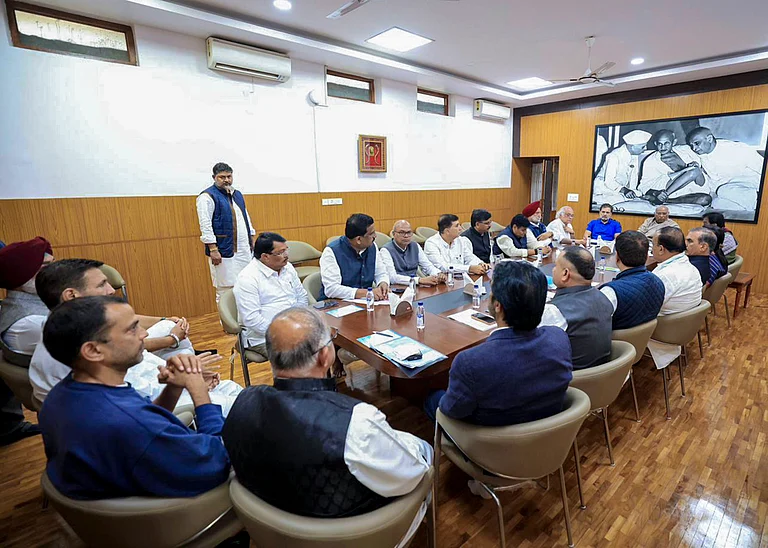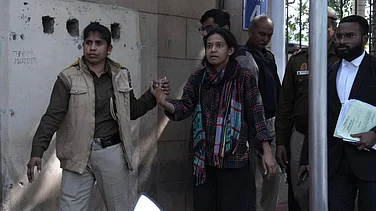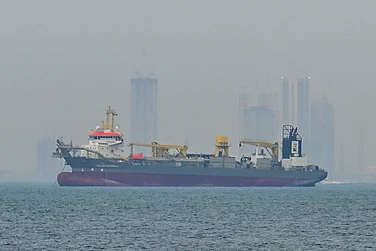China published a fourth list containing 30 additional names for different locations in Arunachal Pradesh, as part of its ongoing efforts to assert its claim over the Indian state.
India has consistently opposed China's attempts to rename locations in Arunachal Pradesh, emphasizing that the state is an inseparable part of the nation and renaming places does not change this fact.
The state-run Global Times reported on Sunday that the Chinese Ministry of Civil Affairs has published the fourth list of standardized geographical names in Zangnan, which is the Chinese name for Arunachal Pradesh.
Beijing claims Arunachal Pradesh as part of south Tibet and the official website of the ministry has added 30 more names for the region.
The report suggested that as per Article 13, the implementation of is set to take effect from May 1 and "place names in foreign languages that may harm China's territorial claims and sovereignty rights shall not be directly quoted or translated without authorisation."
The Chinese Ministry of Civil Affairs published the initial list of standardized names for six locations in Zangnan in 2017. Subsequently, a second list consisting of 15 places was released in 2021, followed by another list containing names for 11 places in 2023.
On the latest release of names by the Chinese civil affairs ministry, the Global Times report said the translation of names of the place in foreign languages or minority languages should comply with standards formulated by related organs of the State Council, which is the central cabinet of China.
Standard translations are made public through notices, the national database for geographical names and official publications on geographical names, according to the implementation measures, it said.
The State Council issued a revised regulation on place names in April 2022, which applies to naming, renaming, usage, cultural protection and other management of geographical names within Chinese territories, it said.
Sela Tunnel issue
China recently made statements to reinstate its territorial claims over the state which began with Beijing filing a diplomatic complaint against India due to Prime Minister Narendra Modi's visit to Arunachal Pradesh.
During the visit, Modi inaugurated the Sela Tunnel, which is situated at an elevation of 13,000 feet in Arunachal Pradesh.
The tunnel will provide all-weather connectivity to strategically located Tawang and is expected to ensure better movement of troops along the frontier region.
Chinese Foreign and Defence ministries have issued a flurry of statements to highlight China's claims over the area.
India's stand on the issue so far
External Affairs Minister S Jaishankar on March 23 dismissed China's repeated claims on Arunachal Pradesh as "ludicrous" and that the frontier state was a "natural part of India".
"This is not a new issue. I mean, China has laid claim, it has expanded its claim. The claims are ludicrous to begin with and remain ludicrous today," he said in response to a question on the Arunachal issue after delivering a lecture at the prestigious Institute of South Asian Studies (ISAS) of the National University of Singapore (NUS).
"So, I think we've been very clear, very consistent on this. And I think you know that is something which will be part of the boundary discussions which are taking place," he said.
Beijing was also peeved over the US statement recognising Arunachal Pradesh as part of Indian territory.
State Department Principal Deputy Spokesperson Vedant Patel said on March 9 that "the US recognises Arunachal Pradesh as Indian territory, and we strongly oppose any unilateral attempts to advance territorial claims by incursions or encroachments, military or civilian, across the Line of Actual Control."
Both the Chinese Foreign and Defence Ministries criticised the US statement saying that the China-India boundary issue is a matter between the two countries and has nothing to do with Washington.





















